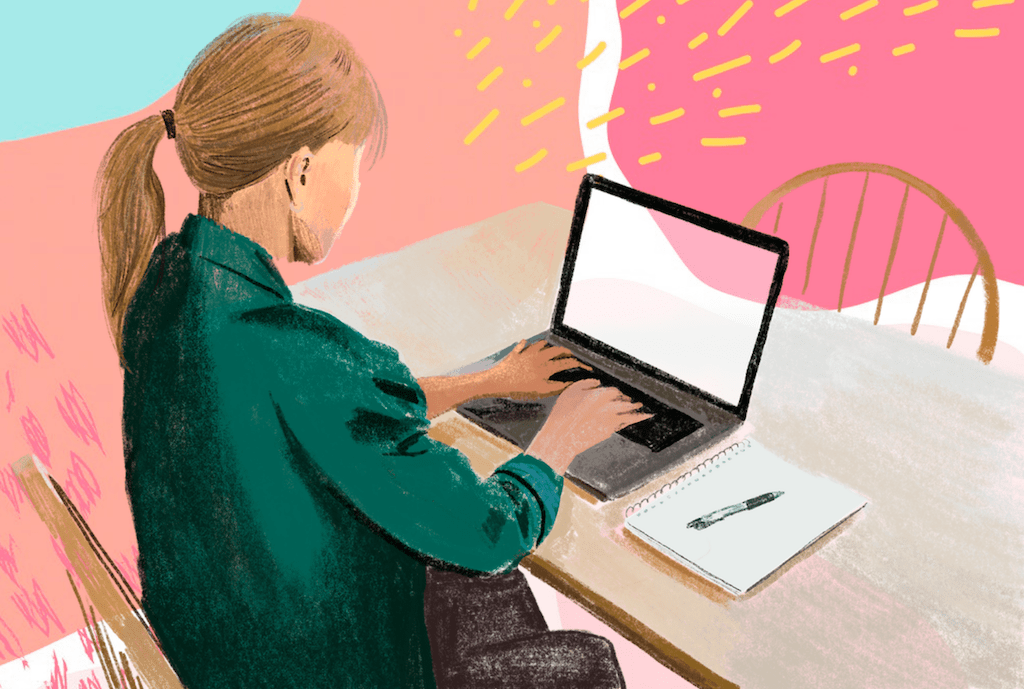Hey, you! Yes, you. Eyes off the TikTok tab. We see you. We hope we can keep your attention at least unt……..
Hello! Are you still with us? Back in the room. Sometimes, checking out memes and reading funny motivational quotes on your socials feed may not be the best way to get your work done.
We realise a discussion of procrastination and motivation doesn’t have the same gravitational pull as the ol’ scroll and swipe, but if you’ve found your lack of focus affecting your work and productivity lately, then it might be worth your while to stick with us.
Now that the novelty of working from home has worn off, so many of us have found the home office environment to be somewhat lacking in motivation. In fact, research published in the Journal of Affective Disorders, drawing on the 2024 Household Pulse Survey of over 87,000 employed US adults, found that those working remotely three to four days per week had 16% higher odds of reporting loneliness than those not working remotely at all, with similar patterns for those working from home five or more days.
The key here, perhaps, for achieving the right balance of productivity and personal contentment is to make the home office environment conducive to clear-headedness and focus.
The irony’s not lost on us; offering tips on staying focused and motivated when you’re probably reading this article to distract yourself from work perhaps isn’t the best idea, but consider the next five minutes an investment, in your productivity and your mindset. You’re here now, and we have your attention, so do yourself a favour and read on; if you’re still WFH in 2026, then here’s how to stay focused and motivated while working from home.
Establish A Daily Routine
First, you should establish a daily routine. While one of the perks of remote work is the fact that you have more freedom, you will find that it is much easier to stay organised and productive when you have a routine. This means you should get up, start work, take breaks and finish at roughly the same time each day.
Download A Productivity App
Sure, it feels counter-intuitive to be outsourcing your attention span to the one thing so desperate to steal it, but productivity apps and tools are a great way to stay motivated, especially if you have a build up of assignments on your to-do list which are clouding your judgment or concentration. By outsourcing some of the more tedious aspects of organisation to the wonderful world of automation, you can free yourself up for the more creative elements of your role.
Such apps can, at a most basic level, offer deadline reminders and prioritise your tasks accordingly, as well as enabling job tracking and scheduling in an easy to view format. More advanced (usually ‘premium’ and requiring a monthly subscription) versions of productivity apps facilitate easy communication between colleagues remotely, enabling even greater organisation of your responsibilities. All of this leads to better focus when working from home.
Read: 10 of the best productivity apps for maximising efficiency

Understand The Procrastination Cycle
Easier said than done, we know. Hey, we’ve walked off to the fridge several times already whilst writing this sentence. But procrastination, in its many sneaky guises, is the enemy of home office based productivity.
As the guys at Mind Cafe highlight, we often “blame lack of self-motivation, laziness, or incompetence for procrastination. In reality, procrastination is chemical and it’s all to do with a battle between the limbic system and the prefrontal cortex in the brain.”
They go on to explain that “The limbic system is the emotional part of the brain, which includes the pleasure center. The prefrontal cortex is the part of the brain responsible for processing information and making decisions. The prefrontal cortex is less developed, and so it is weaker.’
‘That is why, usually, the limbic system wins the prefrontal cortex and thus creating procrastination. The limbic system is one of the dominant parts of the brain and could easily take over if you lose focus on the task at hand. This results in giving in to what makes us feel good, leading to the secretion of dopamine that comes with procrastination.”
Stock Up On Both Office & Lunch Supplies
Crafting your set-up for working from home is paramount to your productivity. One aspect often overlooked is ensuring that you have a plentiful stock of both office and lunch supplies. This is crucial not only to keep you comfortable but to ward off distraction and increase your work efficiency.
Running out of printer ink mid-deadline or realising you’ve no lunch in the fridge are small disruptions that derail focus disproportionately. Keep your home office stocked with essentials from reliable stationery suppliers; every trip to the shop or frantic drawer-rummage for a working pen is momentum lost.
Similarly, prepping your lunch supplies plays an equally important role. As appealing as it might sound to potter about in the kitchen on a leisurely lunch break, these diversions often end up taking longer than intended. Before you know it, a fifteen-minute break has spiralled into an hour. Having your lunch pre-prepared or at least having all the necessary ingredients on hand, enables you to have a balanced meal in a timely manner. This not only helps you keep to a schedule, but it also ensures that you’re providing your body with the necessary fuel to continue working effectively during the afternoon.
Find New Rewards For Working
To put it another way, Judson A Brewer, a neuroscientist and director of Research and Innovation at the Mindfulness Centre at Brown University, tells the Guardian that “procrastination has its origins in reward-based learning: a trigger (think about a deadline), a behaviour (scroll social media), then a reward (distract from the unpleasant thought).”
She goes on to say that “Willpower alone is often not enough to overcome such a powerful impulse, evolved to help us remember where to find food.’’
Basically, it’s about reframing that sense of reward. Brewer explains that “The reward can be reframed as the feeling of accomplishment, instead of the relief (tempered by guilt and building anxiety) of a momentary distraction. Reflecting on the rewarding properties of not procrastinating builds healthy habits that become stronger than procrastination itself – hacking our brain in the process.”
The key here is skilfully identifying your procrastinating behaviours and finding new rewards to replace previous distraction methods. If these rewards boost your productivity in the process, then you’re on to a winner!
Don’t Forget To Take Breaks
Perhaps the best reward of all is a short, purposeful break, enabling you to recalibrate and refresh before returning to work reinvigorated.
When your mind becomes tired, unfocused or stressed regarding a deadline, it’s natural to pull up Twitter, scroll meaninglessly, get angry about the state of the world, curse the Kardashian’s good fortune, wonder if a bear would beat a lion in a fight…
Sorry, we got distracted again there. Instead, it pays to identify when your brain needs a distraction, rather than subconsciously seeking one, and making that distraction (the ‘reward’) count.
Rather than reaching for your phone and opening up Instagram, why not take yourself off for a quick walk around the block? The sun on your face and eyes away from screens will open up a fresh sense of perspective and inspiration, enabling you to work better when you return.
Or, consider running on the spot for five minutes or doing a set of sit-ups; make your rewards healthy and beneficial, and you’ll break that procrastination cycle we mentioned so much more effectively.
As long as the reward is productive and wholesome, it’s fair game, we think. Having a crack at a crossword, playing Sudoku or even reading a chapter of your book can all help you find new energy and motivation.

Set Personal Goals
Personal goals, targets and outcome paths are crucial when it comes to staying motivated and productive. Simply sashaying through the day, ticking boxes and doing the bear minimum genuinely takes up as much time and effort as completing your tasks thoroughly and with full attention. The only difference is that the latter advances your career and sense of personal worth.
So, set goals, both in the short term (deadlines) and longer term (a promotion or industry-based award) to reinforce that sense of achievement and reward which is key to self-discipline and motivation when you’re working from home.
Keep Your Body Active
It’s not just your mind which needs stimulation to avoid distraction; keeping your body active is essential, too, to ensure you’re fighting fit each and every day, and motivated to reach your goals.
Working out is a great way to stay productive and be more energized throughout the day. Physical activity gives you a more consistent control of your energy levels, both in your body and your brain, and has even been said to increase your overall productivity in the process.
If you’re finding it hard to get motivated to work out when working from home, check out these tips on how to create an exercise routine from home.
Be Kind To Yourself
Don’t feel the need to overwork yourself in the name of someone else’s concept of ‘productivity’; doing so will only lead to burnout.
Instead, make sure you’re setting boundaries and drawing distinctions between work and home. Remind your workplace that a stressed colleague isn’t a successful one, and try these ways to de-stress after a tough day at the home office, too.
The Bottom Line
It’s challenging to stay motivated and focused, even at the best of times. And we probably don’t have to remind you that these are most certainly not the best of times.
But by learning to understand the procrastination cycle, and by setting goals and targets, as well as keeping your mind and body active, you’ll be able to adapt to home working with increasing ease and comfort. Good luck!





